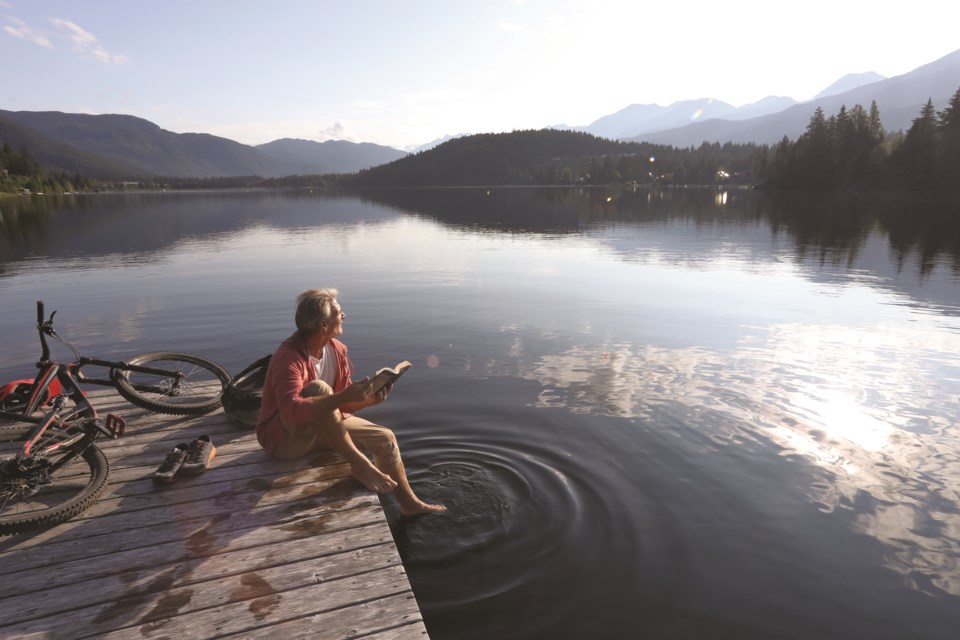Sometimes, the only way to escape the Whistler bubble is through a book. The bonus is that from the comfort of our over-priced, under-insured homes we can not only escape to myriad elsewheres, but also return better-informed about the glossed-over realities and greater machinations of the world. In that vein, here are a few travel- and science-related non-fiction titles worth sharing:
The Sound of the Sea: Seashells and the Fate of the Oceans, by Cynthia Barnett, 2021, Norton
I put this first because it’s one of the most delightful reads I’ve enjoyed these past few years, where surprise and wonder lurked in every chapter. Anyone who has ever picked up a pretty shell on a beach will be amazed to find out how these mollusc constructions have influenced both biological and human history, and how the chemistry behind them points to a dangerous future for our rapidly acidifying oceans. Also, Barnett, Environmental Journalist in Residence at the University of Florida, writes beautifully.
Finding the Mother Tree: Discovering the Wisdom of the Forest, by Suzanne Simard, 2021, Knopff
Most folks in B.C., likely even Canada, know of UBC professor Suzanne Simard’s pioneering work on soil fungi, forest structure and tree communication. This is the story of how it came to pass, beginning with being born into a forestry family and naturally pursuing it as a career before realizing something was terribly wrong with the way it was practised, driven as it is by industry’s demand for more wood yet a catastrophic lack of knowledge of how forests function, regenerate and stay healthy. You’ll never look at a tree the same again—and likely cut down fewer.
Ever Green: Saving Big Forests to Save the Planet, by John W. Reid and Thomas E. Lovejoy, 2022, Norton
Speaking of forests, and since literally nothing could be more important than saving the world’s last remaining large tracts, Reid and Lovejoy take us on a journey from the Amazon to the Congo to New Guinea to northern Canada to make clear that preserving and restoring Earth’s remaining megaforests is, in fact, the way to prevent the worst of the coming climate disaster, but also the only hope we have for finding a new way of living on this planet.
Not on My Watch: How a Renegade Whale Biologist Took on Governments and Industry to Save Wild Salmon, by Alexandra Morton, 2021, Penguin
Field biologist Alexandra Morton began her career studying communication in dolphins and captive orcas. Moving to the remote B.C. coast in 1984 to study wild orca clans, she became embroiled in the fight to protect migratory wild salmon from the significant impacts of salmon farming. Co-authoring more than 20 scientific papers on the subject, she founded the Salmon Coast Research Station, has been featured on 60 Minutes, and participated in numerous legal and protest actions, including a First Nations-led occupation of salmon farms in the Broughton Archipelago. You’ll marvel at her composure and perseverance in the face of malign government and industry forces—and never eat a farmed salmon again.
Super Volcanoes: What they Reveal about Earth and the Worlds Beyond, by Robin George Andrews, 2022, Norton
Sure volcanoes are cool—as long as they’re not hot. So, we pay attention to them. Hell, there’s one up at the head of Pemberton Meadows that poses the greatest geohazard risk to life and limb in the Sea to Sky corridor. But they’re not just evil conduits to the centre of the Earth waiting to blow us to smithereens. They tell stories that connect the Hadean underworld to the human one above it, about the Earth’s early days and, in fact, most of the solar system. Volcanoes on the moon? Mars? Venus? You bet.
The Premonition: A Pandemic Story, by Michael Lewis, 2021, Norton
I won’t say much about this other than the first whodunit about the COVID-19 pandemic is an informative, well-penned page-turner from a master about whom a New York Times book reviewer remarked “I would read an 800-page history of the stapler if [Lewis] wrote it.”
What Your Food Ate: How to Heal our Land and Reclaim our Health, by David R. Montgomery and Anne Biklé, 2022, Norton
A geologist and a biologist walk into a grocery store. But it’s no joke. In fact, there’s nothing funny about it because what they see isn’t what you see. Amidst the visage of 21st-century plentitude, aisles packed with colourfully packaged products and produce aisles stacked in colourful pyramids, is a terrifying reality: troubling nutrient declines across the spectrum of the human diet, from fruits and vegetables to grains, meats, and dairy. A sea of molecules, but not the phytochemicals, fats and micronutrients we need, but synthetic fertilizers, pesticides, antibiotics and the sugar, salt and trans-fats of processed food. Journeying from research labs to farm fields the authors uncover scientific and historical evidence for how farming practices influence soil health and shape the types and amounts of health-promoting substances in our diet—and ourselves. This ultimate “you are what you eat” is a return to a cri de coeur first uttered by Hippocrates in 400 BCE.
Leslie Anthony is a biologist, writer and author of several popular books on environmental science.




